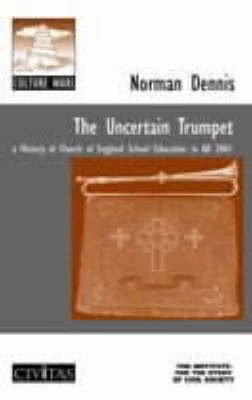Culture wars
1 total work
From the arrival of the Celtic monks until well into the 19th century, all formal education in Britain was religious education. Until the middle of the 17th century, formal education was under the sole auspices of the Church of England. But whether strictly under the control of the Church of England or not, the prevailing belief was that, without religion at its heart, education could not take place at all. When the state began to fund Christian schools at the beginning of the 19th century, it raised the question of what sort of religious instruction could be properly paid for by the government. Publicly funded schools should be open to all, but denominational teaching would exclude some children. If publicly-funded schools should be open to all, can denominational teaching be permitted to exclude some children? The 1870 Education Act set up Board schools, which raised the further question of the type of religious education which a secular authority could provide. In the 20th century rival theories of the purpose of education have challenged the desirability of schools being used to transmit faith at all.
In spite of the attempts of parliament to protect the rights of church schools, Norman Dennis shows how those schools were greatly influenced by the trends of the secular culture in which they operated. Moral relativism, which should have found it strongest opponent in church schools, was embraced in a process resembling assisted suicide. Morality became the love that dare not speak its name. The social consequences of the failure to teach young people the difference between right and wrong are all around us. The government urges the church schools to promote their distinctive ethos. The question is, have the churches lost their nerve to sound the clarion call?
In spite of the attempts of parliament to protect the rights of church schools, Norman Dennis shows how those schools were greatly influenced by the trends of the secular culture in which they operated. Moral relativism, which should have found it strongest opponent in church schools, was embraced in a process resembling assisted suicide. Morality became the love that dare not speak its name. The social consequences of the failure to teach young people the difference between right and wrong are all around us. The government urges the church schools to promote their distinctive ethos. The question is, have the churches lost their nerve to sound the clarion call?
